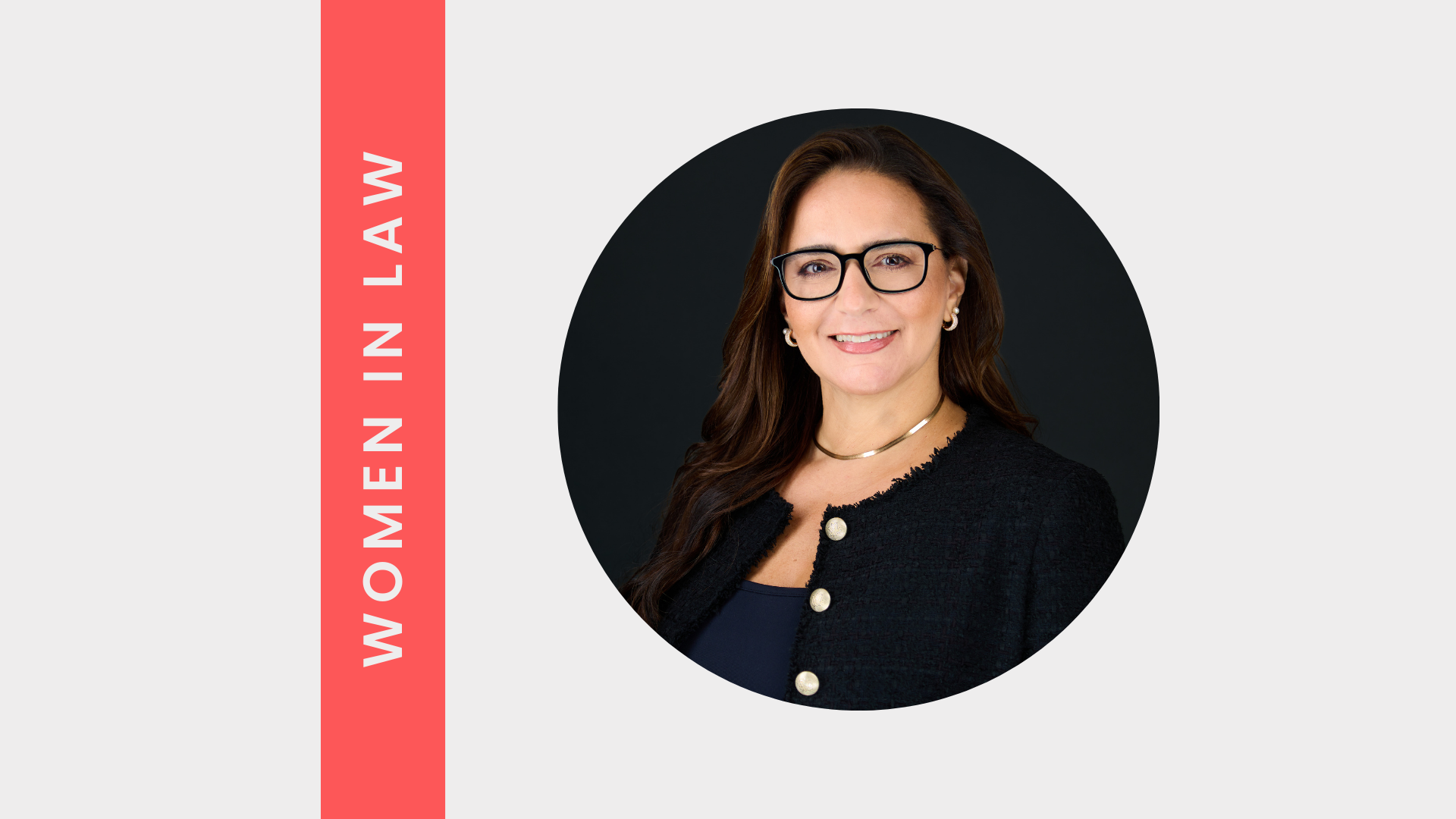Inspiring Business Women: Sharon Julien
Sharon is a Senior Programme Manager with substantial experience within the Financial Services Sector with several years of ‘Big 4’ Management Consultancy experience. She has extensive project and programme management skills and has successfully led a range of Business Transformation, Regulatory, Risk Management, Finance, and Systems Integration programmes to conclusion - operating at up to board level. She has also managed Group-wide multi-million international programmes across Africa, Asia, Europe and the Middle East.
Could you share with us your career progression to date?
I studied Computer Science at the University of Greenwich – I had never touched a computer before, but I knew that it was something that could help me secure a good job. I then got on The Prudential's graduate training scheme and I was the first person from my course to land a job. I started in the Technology department as a trainee computer programmer, then worked my way up to analyst programmer, team leader and then into project management. I wanted to do an MBA and after pitching the business case for doing it, they sponsored me to go to Cass Business School. By the time I'd finished, I'd been with Prudential for 7 years and only really knew about insurance. As I wanted to expand my sector knowledge, I went into consultancy at PwC where I learnt about the rest of Financial Services (working at JP Morgan, Standard Chartered Bank and Zurich Financial Services), managing larger projects and getting to work in 11 different countries over my time there. After a second spell with Prudential as a Corporate Programme Manager, I decided to become a contractor and worked at Lloyds Banking Group, and Aviva. At that point, I had started a family and wanted a better work/life balance, which meant going back to permanent work, so my job at the Bank of England was ideal. I was recruited to set up and implement the Structural Reform ‘Ring Fencing’ programme. I'm now managing the ISO2022 programme (implementing an international payments standard) as well as an Enterprise Integration programme (Implementation of an integration bus). It's a challenging and interesting job, working with talented people at an organisation that shares my values, so I'm really enjoying it.
What propelled you to enter the Project Management space?
I was a lousy programmer! Well maybe not lousy, but I was not the best and I always strive to be the best. At Prudential, they very quickly saw my organisational and people skills, and my talent for bridging the gap between the technology and business areas. I took on more project management roles, managing people far more senior than myself at times, and realised that I really liked setting things up, building a team and implementing a project to completion.
After roles in Financial Services, what challenges did you experience moving to the Bank of England?
The Bank of England (BOE) is a very different environment in many ways, one of which is that it is not the private sector. We can't throw money at a problem, for example, it's much more about value for money because the Bank is there to serve the good of the people of the UK not to make a profit. In the private sector, if I need a contractor tomorrow, I can get one, but at the Bank, I need to put a strong my case forward and there are checks and screening required before a contractor can start. After all, it's the people's money, so we have to be careful with it. It's also a very different culture. It's much less direct, more collaborative, and, in terms of the way decisions are made, a more formal structure and more formal governance. Everybody knows each other at the Bank as it’s not large, and there are a lot of support networks available, such as a black and ethnic minority network; an LGBT network; and faith networks, which I didn’t see in my time in the private sector. I expect they may be in place now.
What are the biggest challenges you've faced in your career so far and are any due to gender?
It is difficult to know as a black woman from a lower socio-economic group, whether or not the challenges that I have faced are due to gender, race or the fact that I'm from the lowest socio-economic group or all three. There definitely are challenges being a woman. Even though there are more women in senior positions now, there are still challenges faced by women even at this senior level.
Earlier on in my career, I was in the very male-dominated Tech sector and it was a challenge to get my voice heard or build relationships. Then in my Management Consultant years, I travelled the world, but people would often assume that someone in my team was the senior manager. At Prudential, I went on a career development for women course and that really helped me to understand that other senior women faced the same problems in getting their voice heard. In addition to gender challenges, as a black woman, I’ve suffered from mistaken identity many times too, often mistaken for a PA or another black woman in the department. As you get higher up, it’s important to focus on what you need to do to take the next step in your career, what the rules are, and position yourself accordingly. There is still the challenge of understanding the unwritten rules of the game that enable you to progress.
This year, there has been a real shift towards a more collective consciousness of the BAME experience, led by the Black Life Matters movement. How have you seen this play out in the workplace?
I am really pleased with what the Bank has done in response to this. It had already initiated African Caribbean Under Graduate sponsorships and we’d had unconscious bias training and ‘Let’s Talk About Race’ training, but we have recently had online meetings with all the senior figures, including the Governor, talking about these issues. We've had quite a few key people do talks to help us understand the different issues better and to understand the specific actions to take the initiative forward.
What can hiring managers do to create anti-racist working environments and champion diversity?
At the Bank, to champion diversity, we have implemented anonymous applications, redacting the gender and ethnicity of candidates. We advertise on wider jobs boards and use agencies that target diverse groups and I personally use my LinkedIn network so that candidates can see a black woman at the Bank of England is hiring, and that encourages a more diverse range of candidates to apply. I have also made the mandatory and the desirable criteria for roles much shorter because I want people with the right values for the Bank and with potential (rather than specifying exact experience or a certain industry background), which opens it up to more candidates. We’re also making sure that everyone has unconscious bias training before recruiting and are ensuring that our interview panels are as diverse as possible. In terms of inclusion, we are looking into our attrition rates and promotion rates to understand the progress of BAME employees better and deploying sponsorship and coaching where we can, and other initiatives such as secondments onto strategic projects.
Do you believe there's a glass ceiling for women in the workplace, and has it changed?
It's definitely improved a lot, but it is still there. At this stage in my career, I do think the ethnicity one is bigger as I see many more senior women around me. However, the lockdown has shown us that when it comes to childcare, often that is with the woman, so when something like this happens it really can impact things for women. When I was at PwC, a lot of the women who had children at that time couldn't continue that career of travelling all over all around the world, and that isn’t always true for men. Things of course may be different in consultancy now.
How do you feel the Financial Services industry compares to others, regarding diversity, and how has that changed?
I have only ever worked in Financial Services so I can’t compare other sectors, but I have seen improvement in terms of gender diversity. It can still be tough when you’re the only senior woman, but it’s still come a long way. In my career, I've mainly worked with men, but at the Bank now, I'm working with far more women than I've ever worked with and far more black people than I've ever worked with. Although things have improved there is still a lack of representation of black people in the more senior roles at the Bank and throughout the Financial Services Industry. The Bank and the rest of the industry are aware of this and are addressing this.
What are some key moments in your career that have helped or hindered you in getting to where you are?
I cannot really recall specific moments that have hindered me, but there have been some pivotal moments right from the start. I always like to challenge myself. I chose to do Economics at A-Level, despite never having studied it and despite the lecturer trying to dissuade me because of my background and the newspaper that my family read. Realising there was a class divide to overcome was a key moment for me. I mentioned the Computer Science degree and how I decided upon the course having never touched a computer and challenge myself, then I pushed for the MBA opportunity, which was a turning point because it got me interested in Management Consultancy. Taking those leaps and opportunities meant I later worked all over the world and progressed my career to my current position.
What advice would you give to a BAME woman looking to progress their career in Banking or FS?
As a woman, you've got to be twice as good. As a black woman, probably three or four times as good. You really do have to know your stuff, in terms of the latest thinking and understanding the business. My advice is to build relationships and networks because getting to know everybody is vital. Socialising and taking part are important too - you will miss out on something if you don't immerse yourself. Make sure you get yourself heard by speaking up in meetings and volunteer for things outside of your role. I think that getting a mentor or a coach early on in your career is great, and a sponsor later in your career is essential. They can help you focus on your goals and what you want to achieve. Talking about it and letting it be known that you want to get on really counts, because no one will notice you just sitting there working really hard.
Do you have any role models?
Yes, my ultimate role model is my mother, who came to England from Dominica with my father in 1956, and whose sacrifices, drive and ambition helped to get me to where I am today.
Within the Bank we have a black female CFO Afua Kyei, she is a good role model for me.
Outside of the Bank, it is Sharon White who was at the Treasury and Ofcom and is now the chair of John Lewis. That's where I want to see more women and more black women. We need representation at that level. We need more Sharon Whites!
Our latest insights







